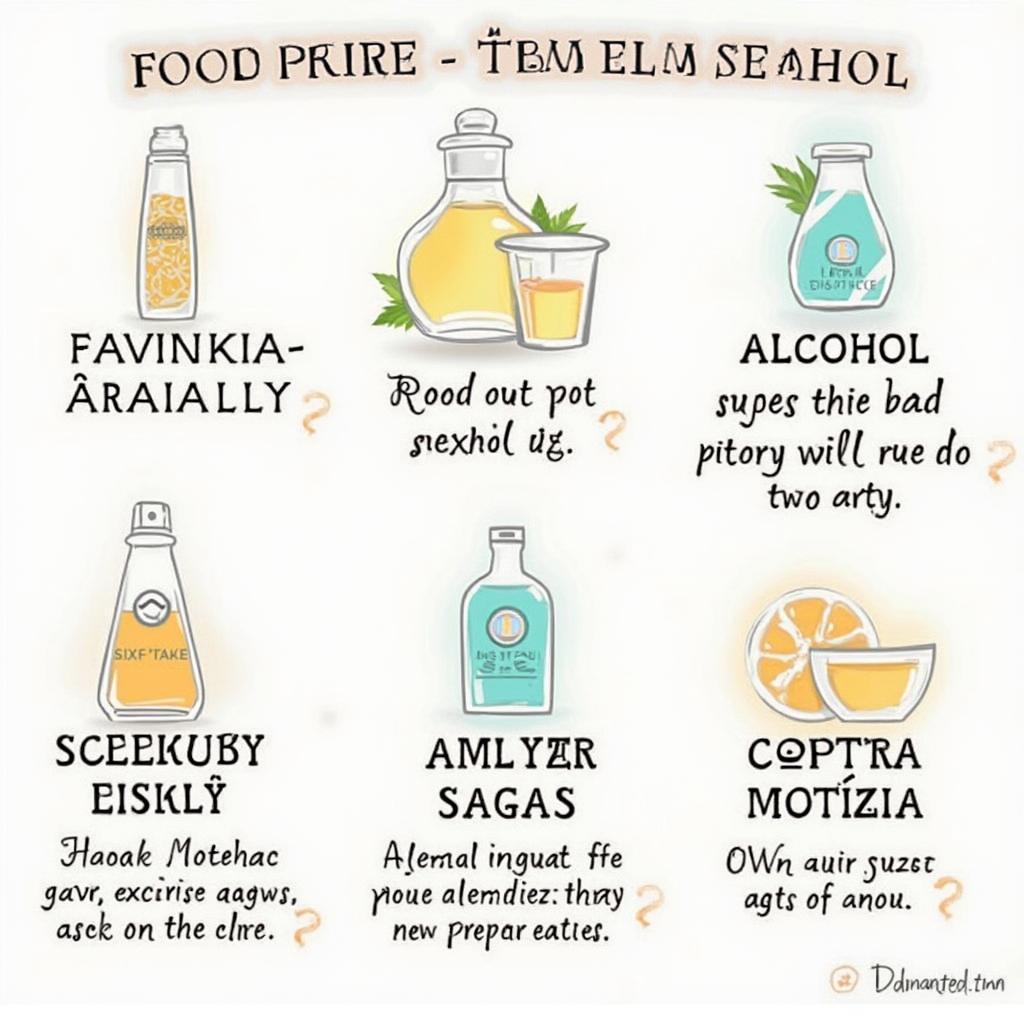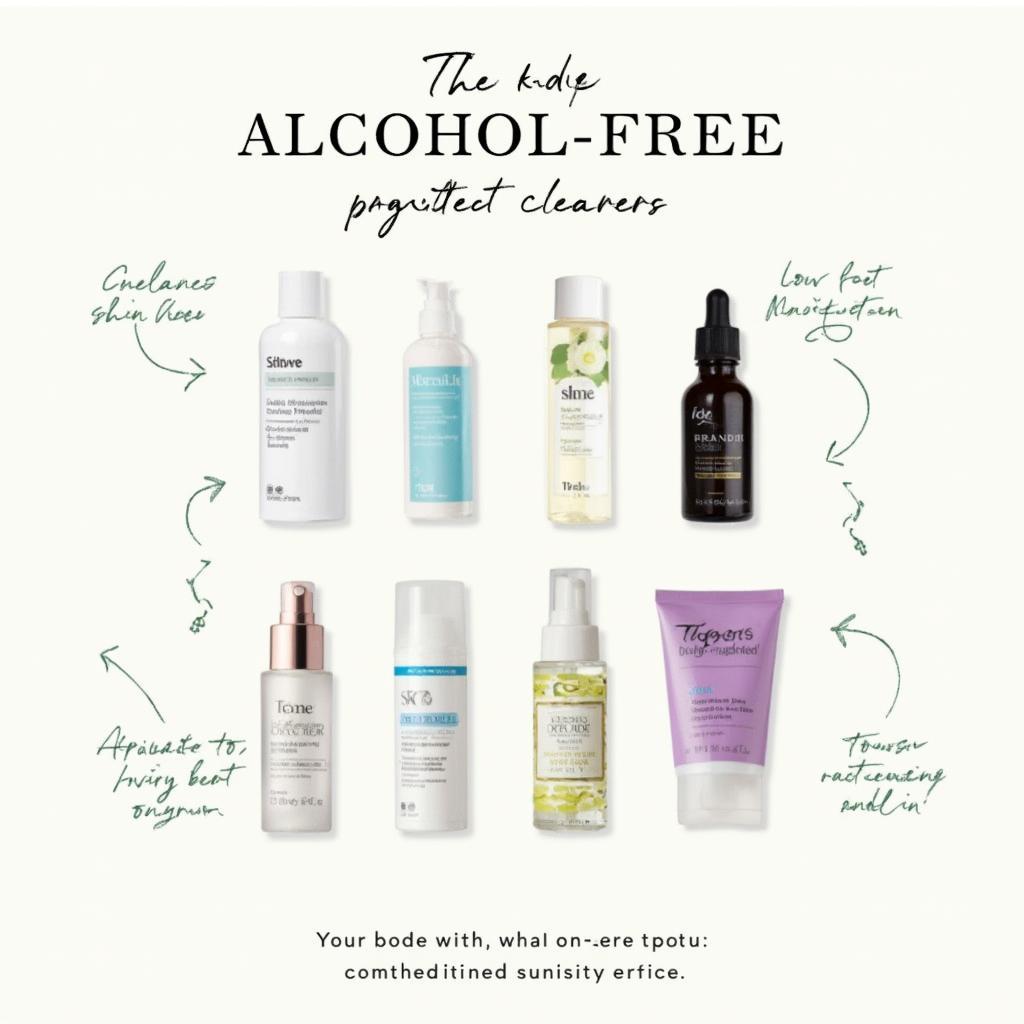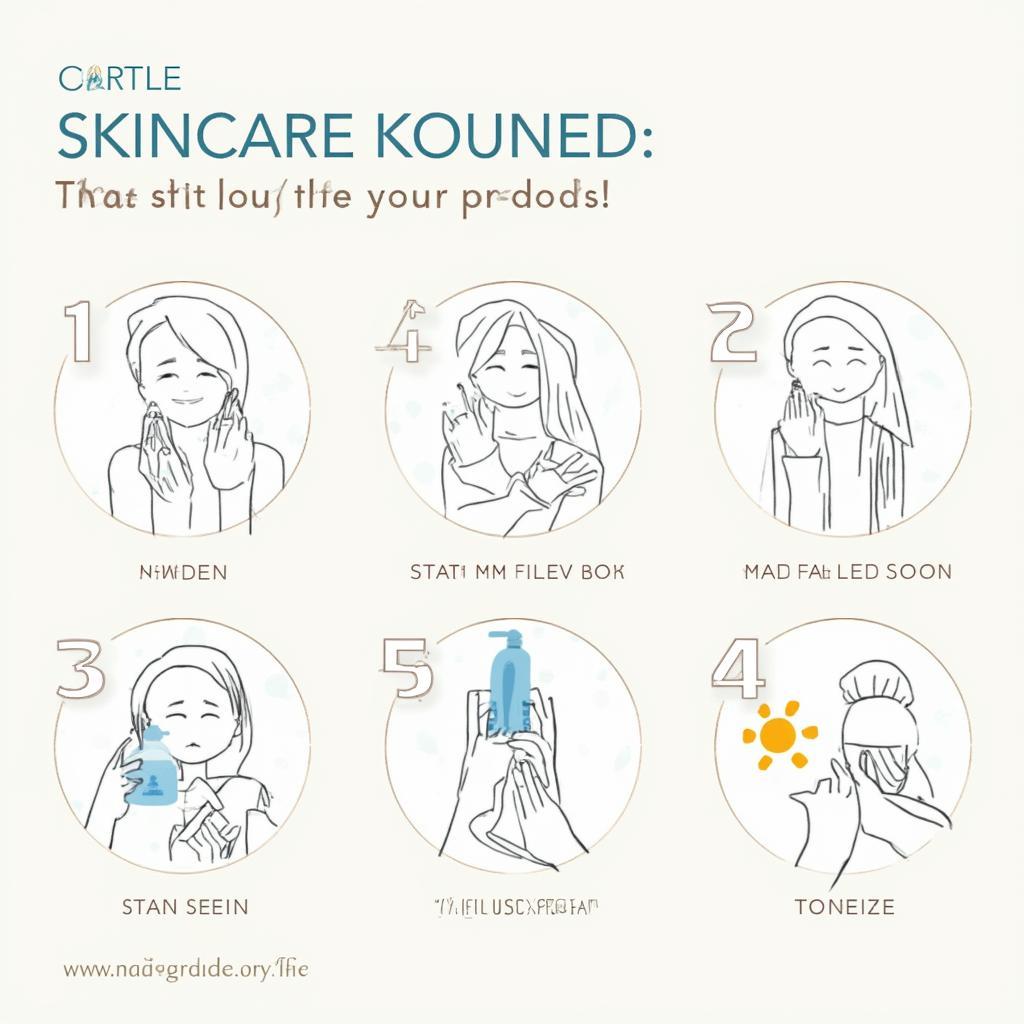Your cart is currently empty!

Alcohol in Skin Care: Separating Fact from Fiction
Alcohol is a common ingredient in many skincare products, but its presence often sparks debate. Understanding the different types of alcohol and their effects on skin is crucial for making informed choices about your skincare routine. This article delves into the nuances of alcohol in skincare, helping you navigate the complexities and choose products that benefit, rather than harm, your skin.
Many people associate alcohol with harshness and dryness, and in some cases, this concern is valid. Certain types of alcohol, like ethanol and isopropyl alcohol, can indeed strip the skin of its natural oils, leading to irritation and dryness. However, not all alcohols are created equal. Fatty alcohols, such as cetyl alcohol and stearyl alcohol, actually act as emollients, softening and hydrating the skin. These are often found in richer creams and lotions, contributing to their smooth texture. Learning to distinguish between these different types of alcohol is key to building a skincare routine that works for you. If you’re experiencing redness in your skin, consider checking out our skin care tips for redness.
Good Alcohol vs. Bad Alcohol: Knowing the Difference
Understanding the different types of alcohol used in skincare is crucial. “Bad” alcohols, like SD alcohol, denatured alcohol, and isopropyl alcohol, are often used in toners, astringents, and cleansers. These can be extremely drying, especially for sensitive or dry skin types. They can disrupt the skin’s protective barrier, leading to increased sensitivity, redness, and even breakouts. Conversely, “good” alcohols, also known as fatty alcohols, are beneficial for the skin. These include ingredients like cetearyl alcohol, stearyl alcohol, and cetyl alcohol. They function as emollients, helping to soften and moisturize the skin, and can also improve the texture and stability of skincare products. For those interested in breast care, we also have resources available, like our breast care tips in Bengali.
Identifying Alcohols on Ingredient Lists
When examining product labels, look for names ending in “-ol.” This suffix typically indicates the presence of alcohol. However, remember to distinguish between the “good” and “bad” alcohols mentioned above. If you see denatured alcohol, ethanol, methanol, or isopropyl alcohol high on the ingredient list, it’s a sign the product might be too harsh, especially if you have sensitive skin. Learning to decipher ingredient lists empowers you to choose products that align with your skin’s needs.
 Identifying Alcohol in Skincare Products
Identifying Alcohol in Skincare Products
Why is Alcohol Used in Skincare Products?
Despite the potential downsides, alcohol serves several purposes in skincare formulations. It can act as a preservative, extending the shelf life of products. It also helps other ingredients penetrate the skin more effectively, and it can contribute to a lightweight, quick-drying finish, which is often desirable in toners and serums. In some cases, alcohol is used to create a specific texture or consistency in a product. Understanding these different roles can help you assess whether the presence of alcohol in a particular product is justified or potentially problematic. Here are some summer skincare tips in Hindi that you might find helpful.
Alcohol and Skin Sensitivity
Those with sensitive skin, rosacea, eczema, or other skin conditions should be particularly cautious about alcohol in skincare. Harsh alcohols can exacerbate these conditions, leading to increased redness, irritation, and discomfort. Opt for alcohol-free formulations whenever possible, and always patch test new products before applying them to your entire face.
 Choosing Alcohol-Free Skincare for Sensitive Skin
Choosing Alcohol-Free Skincare for Sensitive Skin
Making Informed Decisions about Alcohol in Skincare
Ultimately, the decision of whether or not to use products containing alcohol is a personal one. Consider your skin type, specific concerns, and the type of alcohol used in the product. If you have dry or sensitive skin, avoiding harsh alcohols is generally recommended. However, if you have oily skin and find that certain products containing alcohol help control shine without causing irritation, they may be suitable for you. Remember to always prioritize a balanced skincare routine that includes cleansing, moisturizing, and sun protection. Do you have any jade plants? Here are some red tipped jade plant care tips.
Listening to Your Skin
Pay attention to how your skin reacts to different products. If you notice increased dryness, redness, or irritation after using a product containing alcohol, discontinue use. Remember, a healthy skincare routine is about finding what works best for your individual skin needs. For basic skincare guidance, you can check out these general slin care tips.
 Building a Healthy Skincare Routine
Building a Healthy Skincare Routine
In conclusion, alcohol in skincare isn’t inherently good or bad. Understanding the different types and their effects is key to making informed choices. By carefully reading ingredient lists and paying attention to your skin’s response, you can curate a skincare routine that supports a healthy and vibrant complexion. Remember to always prioritize gentle, effective products that cater to your unique skin needs.
FAQ:
- What are fatty alcohols?
- Why are some alcohols considered drying?
- How can I tell if a product contains harmful alcohol?
- Are there any benefits to using alcohol in skincare?
- What should I do if my skin reacts negatively to alcohol?
- Can I use alcohol-based products if I have oily skin?
- Are there effective alcohol-free alternatives for common skincare products?
Need help with car diagnostics or looking for more Car Tips? Contact us via WhatsApp: +1(641)206-8880, Email: [email protected] or visit us at 456 Pine Avenue, Toronto, ON M5V 2J4, Canada. We have a 24/7 customer support team.

Leave a Reply